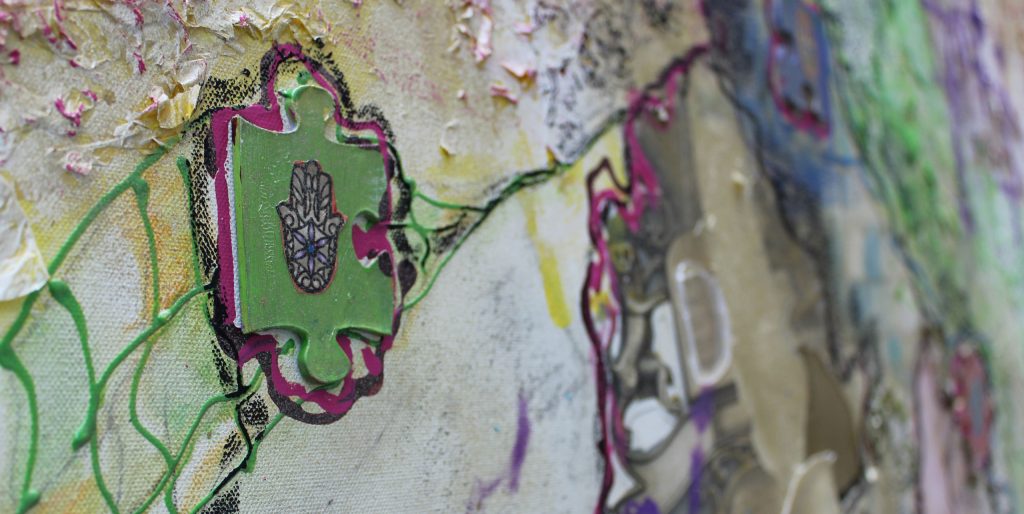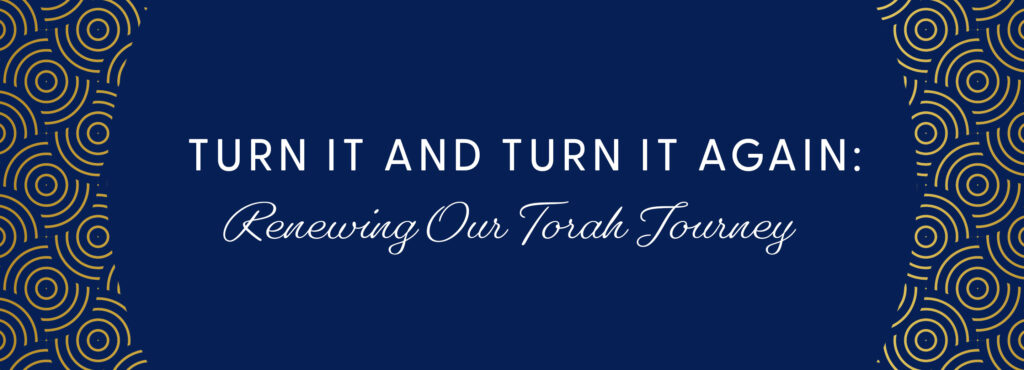
[Rabbinic Sage] Ben Bag Bag would say: “Turn it and turn it again, for all is in it.” — Pirke Avot 5:22
Please join us on Thursday, Oct. 20, 2022 from 7-7:45 p.m. EST for Turn It and Turn It Again: Renewing Our Torah Journey to celebrate the beginning of another year of Jewish learning and community with Hebrew College and friends. All are welcome, whether you’ve been studying with us for years or you’re joining us for the first time.
This online Zoom event will feature an introduction by Rabbi Sharon Cohen Anisfeld, President of Hebrew College, followed by these breakout teaching sessions with Hebrew College faculty members:
“A Very Brief Introduction to Kabbalah”
with Rabbi Nehemia Polen
Total immersion in the complexities of Kabbalah can take a lifetime– kabbalists might say, many lifetimes! Yet we will attempt to introduce some core ideas and dynamic processes of Jewish mysticism in this twenty-minute session, with an eye for suggesting contemporary resonances and surprisingly modern implications.
“The Creative Imperative in Early Hasidism: Rabbi Moses Hayim Efrayim of Sudilkov (d.1800) on Genesis”
with rabbi Or N. Rose
As we renew our annual reading of the Torah, we begin with the Book of Genesis (Bereishit) and the story of the creation of the world. What is the relationship between Divine creativity and human creativity? Join us as we explore this subject in teachings of the early Hasidic master, Rabbi Moses Hayim Efrayim of Sudilkov, author of the influential homiletical work, Degel Mahaneh Efrayim (1810), and grandson of the legendary Ba’al Shem Tov (d. 1760). Together, we will examine how this acclaimed mystical commentator understands the intimate relationship of primordial wisdom (hokhmah), the natural world (ha-tevah), the letters and words (teivot) of Torah, and the human quest for meaning and purpose—as beings created in the Divine image (tzelem Elohim).
“Good and Mad? Divine and Human Anger in the Talmud”
with Rabbi Shani Rosenbaum `21
What was the Rabbis’ relationship to anger? How did they imagine God’s relationship to God’s own wrath? Through exploring some excerpts from the Talmud, we’ll briefly bring our own human experience in conversation with our ancestors’, and see what new insights arise.
“The Transformative Power of Learning”
with Dr. Susie Tanchel
In the early chapters of Genesis, God learned some new attributes of human beings that forever transformed their relationship. Through the exploration of a few biblical and rabbinic texts, we will discover ways in which our tradition maps onto our understanding of the educational experience and where it diverges from it.
Meet the Faculty
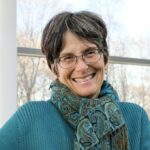 Rabbi Sharon Cohen Anisfeld became President of Hebrew College in July 2018. Rabbi Anisfeld first came to Hebrew College in 2003 as an adjunct faculty member of the Rabbinical School and then served as Dean of Students from 2005-2006. She went on to serve as Dean of the Rabbinical School for eleven years, from 2006-2017. Rabbi Anisfeld graduated from the Reconstructionist Rabbinical College in 1990, and subsequently spent 15 years working in pluralistic settings as a Hillel rabbi at Tufts, Yale and Harvard universities. She has been a regular summer faculty member for the Bronfman Youth Fellowships in Israel since 1993 and is co-editor of two volumes of women’s writings on Passover, “The Women’s Seder Sourcebook: Rituals and Readings for Use at the Passover Seder” (Jewish Lights Publishing, 2002) and “The Women’s Passover Companion: Women’s Reflections on the Festival of Freedom” (Jewish Lights Publishing, 2002). She writes and teaches widely, weaving together Torah, rabbinic commentary, and contemporary poetry and literature in her wise and compassionate approach to the complexities of the human experience and the search for healing and hope in a beautiful but fractured world.
Rabbi Sharon Cohen Anisfeld became President of Hebrew College in July 2018. Rabbi Anisfeld first came to Hebrew College in 2003 as an adjunct faculty member of the Rabbinical School and then served as Dean of Students from 2005-2006. She went on to serve as Dean of the Rabbinical School for eleven years, from 2006-2017. Rabbi Anisfeld graduated from the Reconstructionist Rabbinical College in 1990, and subsequently spent 15 years working in pluralistic settings as a Hillel rabbi at Tufts, Yale and Harvard universities. She has been a regular summer faculty member for the Bronfman Youth Fellowships in Israel since 1993 and is co-editor of two volumes of women’s writings on Passover, “The Women’s Seder Sourcebook: Rituals and Readings for Use at the Passover Seder” (Jewish Lights Publishing, 2002) and “The Women’s Passover Companion: Women’s Reflections on the Festival of Freedom” (Jewish Lights Publishing, 2002). She writes and teaches widely, weaving together Torah, rabbinic commentary, and contemporary poetry and literature in her wise and compassionate approach to the complexities of the human experience and the search for healing and hope in a beautiful but fractured world.
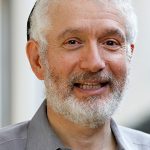 Rabbi Nehemia Polen is Professor of Jewish Thought at Hebrew College and is a leading expert in Hasidism and Jewish thought. A widely published author, his books include The Holy Fire: The Teachings of Rabbi Kalonymus Kalman Shapira, the Rebbe of the Warsaw Ghetto (Jason Aronson Inc., first ed., 1977); The Rebbe’s Daughter (Jewish Publication Society, 2002), based on Polen’s research as a National Endowment for the Humanities fellow and recipient of a National Jewish Book Award; Filling Words With Light: Hasidic and Mystical Reflections on Jewish Prayer (Jewish Lights Publishing, 2004), written with Lawrence Kushner; and From Tiberias, With Love: A Collection of Tiberian Hasidism, volume I: Rabbi Menachem Mendel of Vitebsk, edited by Aubrey Glazer (Fons Vitae Press, 2020.) Polen holds a doctorate from Boston University, where he studied with and served as a teaching fellow for Nobel Laureate Elie Wiesel. Prior to his career in Jewish academia, Polen served for 23 years as a congregational rabbi.
Rabbi Nehemia Polen is Professor of Jewish Thought at Hebrew College and is a leading expert in Hasidism and Jewish thought. A widely published author, his books include The Holy Fire: The Teachings of Rabbi Kalonymus Kalman Shapira, the Rebbe of the Warsaw Ghetto (Jason Aronson Inc., first ed., 1977); The Rebbe’s Daughter (Jewish Publication Society, 2002), based on Polen’s research as a National Endowment for the Humanities fellow and recipient of a National Jewish Book Award; Filling Words With Light: Hasidic and Mystical Reflections on Jewish Prayer (Jewish Lights Publishing, 2004), written with Lawrence Kushner; and From Tiberias, With Love: A Collection of Tiberian Hasidism, volume I: Rabbi Menachem Mendel of Vitebsk, edited by Aubrey Glazer (Fons Vitae Press, 2020.) Polen holds a doctorate from Boston University, where he studied with and served as a teaching fellow for Nobel Laureate Elie Wiesel. Prior to his career in Jewish academia, Polen served for 23 years as a congregational rabbi.
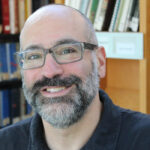 Rabbi Or Rose is the founding Director of the Betty Ann Greenbaum Miller Center for Interreligious Learning & Leadership of Hebrew College. Before assuming this position in 2016, he worked in various administrative and teaching capacities at Hebrew College for over a decade, including serving as a founding faculty member and Associate Dean of the Rabbinical School. Rabbi Rose was also one of the creators of CIRCLE, The Center for Interreligious & Community Leadership Education, cosponsored by Hebrew College and Andover Newton Theological School (2007-2017). In addition to his work at Hebrew College, Rabbi Rose has taught for the Bronfman Youth Fellowships, The Wexner Graduate Fellowship, Hebrew College Me’ah community eduction program, and in a variety of other academic, religious, and civic contexts throughout North America and in Israel. A prolific author and editor, his recent publications include: Words To Live By: Sacred Sources for Interreligious Engagement (co-editor, Orbis) and Rabbi Zalman Schachter-Shalomi: Essential Teachings (co-editor, Orbis). Rabbi Rose is also the creator of the weekly scriptural commentary series 70 Faces of Torah, curator of the web-based project PsalmSeason, and co-publisher of the Journal of Interreligious Studies.
Rabbi Or Rose is the founding Director of the Betty Ann Greenbaum Miller Center for Interreligious Learning & Leadership of Hebrew College. Before assuming this position in 2016, he worked in various administrative and teaching capacities at Hebrew College for over a decade, including serving as a founding faculty member and Associate Dean of the Rabbinical School. Rabbi Rose was also one of the creators of CIRCLE, The Center for Interreligious & Community Leadership Education, cosponsored by Hebrew College and Andover Newton Theological School (2007-2017). In addition to his work at Hebrew College, Rabbi Rose has taught for the Bronfman Youth Fellowships, The Wexner Graduate Fellowship, Hebrew College Me’ah community eduction program, and in a variety of other academic, religious, and civic contexts throughout North America and in Israel. A prolific author and editor, his recent publications include: Words To Live By: Sacred Sources for Interreligious Engagement (co-editor, Orbis) and Rabbi Zalman Schachter-Shalomi: Essential Teachings (co-editor, Orbis). Rabbi Rose is also the creator of the weekly scriptural commentary series 70 Faces of Torah, curator of the web-based project PsalmSeason, and co-publisher of the Journal of Interreligious Studies.
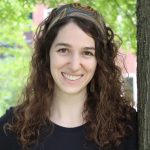 Rabbi Shani Rosenbaum`21 joined the Hebrew College faculty in 2021. Her teaching focuses on rabbinic and halakhic literature. Shani holds a BA in Near Eastern and Judaic Studies from Brandeis University and rabbinic ordination from her teachers at Hebrew College. She has also pursued immersive Torah study in a range of yeshiva settings, including Midreshet Lindenbaum, Matan, Beit Midrash Har’el, Yeshivat Hadar, Yashrut, and the Pardes Kollel. Shani spent her early career working on the programming teams of several organizations pursuing justice through a Jewish lens, including Encounter and OLAM, where she produced the Global Torah podcast. In 2020, she conducted a “Jewish Law and Ethics Hackathon for the Age of COVID-19” for T’ruah: The Rabbinic Call for Human Rights. In addition to her courses in the Rabbinical School, Shani teaches Talmud, Halakha and Midrash through Hebrew College Open Circle Jewish Learning. She served as Managing Editor for Hiddushim: Celebrating Hebrew College’s Centennial, a volume of essays on Jewish studies and education, which was published by Academic Studies Press in 2022.
Rabbi Shani Rosenbaum`21 joined the Hebrew College faculty in 2021. Her teaching focuses on rabbinic and halakhic literature. Shani holds a BA in Near Eastern and Judaic Studies from Brandeis University and rabbinic ordination from her teachers at Hebrew College. She has also pursued immersive Torah study in a range of yeshiva settings, including Midreshet Lindenbaum, Matan, Beit Midrash Har’el, Yeshivat Hadar, Yashrut, and the Pardes Kollel. Shani spent her early career working on the programming teams of several organizations pursuing justice through a Jewish lens, including Encounter and OLAM, where she produced the Global Torah podcast. In 2020, she conducted a “Jewish Law and Ethics Hackathon for the Age of COVID-19” for T’ruah: The Rabbinic Call for Human Rights. In addition to her courses in the Rabbinical School, Shani teaches Talmud, Halakha and Midrash through Hebrew College Open Circle Jewish Learning. She served as Managing Editor for Hiddushim: Celebrating Hebrew College’s Centennial, a volume of essays on Jewish studies and education, which was published by Academic Studies Press in 2022.
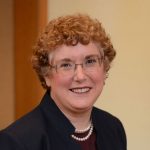 Dr. Susie Tanchel, Vice President of Hebrew College, joined Hebrew College in the summer of 2020, after serving as Head of School at JCDS, Boston’s Jewish Community Day School. During her 9 year tenure at JCDS, Tanchel was an accomplished and deeply beloved leader, guiding the school to preeminence as a national model of excellence in pluralistic Jewish education, and creatively embodying its abiding commitments to community, centrality of Hebrew language, and teaching the whole child. She was a recipient of the 2018 Covenant Award for Jewish Educators.
Dr. Susie Tanchel, Vice President of Hebrew College, joined Hebrew College in the summer of 2020, after serving as Head of School at JCDS, Boston’s Jewish Community Day School. During her 9 year tenure at JCDS, Tanchel was an accomplished and deeply beloved leader, guiding the school to preeminence as a national model of excellence in pluralistic Jewish education, and creatively embodying its abiding commitments to community, centrality of Hebrew language, and teaching the whole child. She was a recipient of the 2018 Covenant Award for Jewish Educators.
Hebrew College Community Education Opportunities
Learn more about Hebrew College Adult and Teen Learning and fall course offerings here. Educators, learn about our professional development offerings through MaTaRoT: Hebrew College’s Center for Jewish Professional Learning & Leadership here.
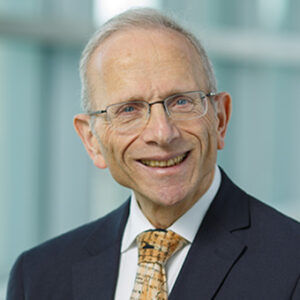 Jonathan Sarna is a leading scholar of American Jewish history. His renowned treatise, American Judaism: A History, won the Jewish Book Council’s Book of the Year Award in 2004 and is now available in a 2nd edition. Coming to Terms with America: Essays on Jewish History, Religion, and Culture (JPS 2021) is the most recent of his more than thirty books on American Jewish history. He is University Professor and the Braun Professor of America Jewish History at Brandeis University.
Jonathan Sarna is a leading scholar of American Jewish history. His renowned treatise, American Judaism: A History, won the Jewish Book Council’s Book of the Year Award in 2004 and is now available in a 2nd edition. Coming to Terms with America: Essays on Jewish History, Religion, and Culture (JPS 2021) is the most recent of his more than thirty books on American Jewish history. He is University Professor and the Braun Professor of America Jewish History at Brandeis University.

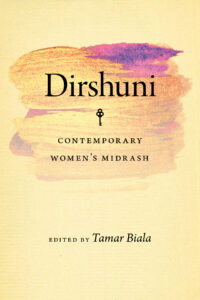
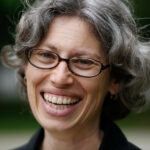
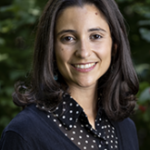 Rabbi Avi Killip `14 is the executive vice president at
Rabbi Avi Killip `14 is the executive vice president at 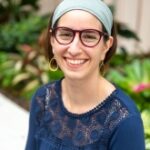 Rabbi Avi Strausberg `15 is the senior director of National Learning Initiatives at
Rabbi Avi Strausberg `15 is the senior director of National Learning Initiatives at 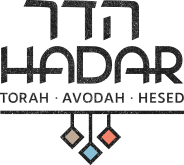
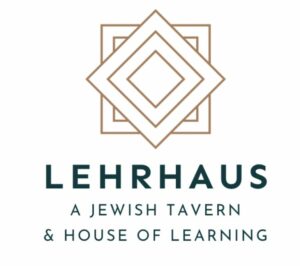

 Rabbi Sharon Cohen Anisfeld became President of Hebrew College in July 2018. Rabbi Anisfeld first came to Hebrew College in 2003 as an adjunct faculty member of the Rabbinical School and then served as Dean of Students from 2005-2006. She went on to serve as Dean of the Rabbinical School for eleven years, from 2006-2017. Rabbi Anisfeld graduated from the Reconstructionist Rabbinical College in 1990, and subsequently spent 15 years working in pluralistic settings as a Hillel rabbi at Tufts, Yale and Harvard universities. She has been a regular summer faculty member for the Bronfman Youth Fellowships in Israel since 1993 and is co-editor of two volumes of women’s writings on Passover, “The Women’s Seder Sourcebook: Rituals and Readings for Use at the Passover Seder” (Jewish Lights Publishing, 2002) and “The Women’s Passover Companion: Women’s Reflections on the Festival of Freedom” (Jewish Lights Publishing, 2002). She writes and teaches widely, weaving together Torah, rabbinic commentary, and contemporary poetry and literature in her wise and compassionate approach to the complexities of the human experience and the search for healing and hope in a beautiful but fractured world.
Rabbi Sharon Cohen Anisfeld became President of Hebrew College in July 2018. Rabbi Anisfeld first came to Hebrew College in 2003 as an adjunct faculty member of the Rabbinical School and then served as Dean of Students from 2005-2006. She went on to serve as Dean of the Rabbinical School for eleven years, from 2006-2017. Rabbi Anisfeld graduated from the Reconstructionist Rabbinical College in 1990, and subsequently spent 15 years working in pluralistic settings as a Hillel rabbi at Tufts, Yale and Harvard universities. She has been a regular summer faculty member for the Bronfman Youth Fellowships in Israel since 1993 and is co-editor of two volumes of women’s writings on Passover, “The Women’s Seder Sourcebook: Rituals and Readings for Use at the Passover Seder” (Jewish Lights Publishing, 2002) and “The Women’s Passover Companion: Women’s Reflections on the Festival of Freedom” (Jewish Lights Publishing, 2002). She writes and teaches widely, weaving together Torah, rabbinic commentary, and contemporary poetry and literature in her wise and compassionate approach to the complexities of the human experience and the search for healing and hope in a beautiful but fractured world. Rabbi Nehemia Polen is Professor of Jewish Thought at Hebrew College and is a leading expert in Hasidism and Jewish thought. A widely published author, his books include The Holy Fire: The Teachings of Rabbi Kalonymus Kalman Shapira, the Rebbe of the Warsaw Ghetto (Jason Aronson Inc., first ed., 1977); The Rebbe’s Daughter (Jewish Publication Society, 2002), based on Polen’s research as a National Endowment for the Humanities fellow and recipient of a National Jewish Book Award; Filling Words With Light: Hasidic and Mystical Reflections on Jewish Prayer (Jewish Lights Publishing, 2004), written with Lawrence Kushner; and From Tiberias, With Love: A Collection of Tiberian Hasidism, volume I: Rabbi Menachem Mendel of Vitebsk, edited by Aubrey Glazer (Fons Vitae Press, 2020.) Polen holds a doctorate from Boston University, where he studied with and served as a teaching fellow for Nobel Laureate Elie Wiesel. Prior to his career in Jewish academia, Polen served for 23 years as a congregational rabbi.
Rabbi Nehemia Polen is Professor of Jewish Thought at Hebrew College and is a leading expert in Hasidism and Jewish thought. A widely published author, his books include The Holy Fire: The Teachings of Rabbi Kalonymus Kalman Shapira, the Rebbe of the Warsaw Ghetto (Jason Aronson Inc., first ed., 1977); The Rebbe’s Daughter (Jewish Publication Society, 2002), based on Polen’s research as a National Endowment for the Humanities fellow and recipient of a National Jewish Book Award; Filling Words With Light: Hasidic and Mystical Reflections on Jewish Prayer (Jewish Lights Publishing, 2004), written with Lawrence Kushner; and From Tiberias, With Love: A Collection of Tiberian Hasidism, volume I: Rabbi Menachem Mendel of Vitebsk, edited by Aubrey Glazer (Fons Vitae Press, 2020.) Polen holds a doctorate from Boston University, where he studied with and served as a teaching fellow for Nobel Laureate Elie Wiesel. Prior to his career in Jewish academia, Polen served for 23 years as a congregational rabbi. Rabbi Or Rose is the founding Director of the
Rabbi Or Rose is the founding Director of the  Rabbi Shani Rosenbaum`21 joined the Hebrew College faculty in 2021. Her teaching focuses on rabbinic and halakhic literature. Shani holds a BA in Near Eastern and Judaic Studies from Brandeis University and rabbinic ordination from her teachers at Hebrew College. She has also pursued immersive Torah study in a range of yeshiva settings, including Midreshet Lindenbaum, Matan, Beit Midrash Har’el, Yeshivat Hadar, Yashrut, and the Pardes Kollel. Shani spent her early career working on the programming teams of several organizations pursuing justice through a Jewish lens, including Encounter and OLAM, where she produced the Global Torah podcast. In 2020, she conducted a “Jewish Law and Ethics Hackathon for the Age of COVID-19” for T’ruah: The Rabbinic Call for Human Rights. In addition to her courses in the Rabbinical School, Shani teaches Talmud, Halakha and Midrash through
Rabbi Shani Rosenbaum`21 joined the Hebrew College faculty in 2021. Her teaching focuses on rabbinic and halakhic literature. Shani holds a BA in Near Eastern and Judaic Studies from Brandeis University and rabbinic ordination from her teachers at Hebrew College. She has also pursued immersive Torah study in a range of yeshiva settings, including Midreshet Lindenbaum, Matan, Beit Midrash Har’el, Yeshivat Hadar, Yashrut, and the Pardes Kollel. Shani spent her early career working on the programming teams of several organizations pursuing justice through a Jewish lens, including Encounter and OLAM, where she produced the Global Torah podcast. In 2020, she conducted a “Jewish Law and Ethics Hackathon for the Age of COVID-19” for T’ruah: The Rabbinic Call for Human Rights. In addition to her courses in the Rabbinical School, Shani teaches Talmud, Halakha and Midrash through  Dr. Susie Tanchel, Vice President of Hebrew College, joined Hebrew College in the summer of 2020, after serving as Head of School at JCDS, Boston’s Jewish Community Day School. During her 9 year tenure at JCDS, Tanchel was an accomplished and deeply beloved leader, guiding the school to preeminence as a national model of excellence in pluralistic Jewish education, and creatively embodying its abiding commitments to community, centrality of Hebrew language, and teaching the whole child. She was a recipient of the 2018 Covenant Award for Jewish Educators.
Dr. Susie Tanchel, Vice President of Hebrew College, joined Hebrew College in the summer of 2020, after serving as Head of School at JCDS, Boston’s Jewish Community Day School. During her 9 year tenure at JCDS, Tanchel was an accomplished and deeply beloved leader, guiding the school to preeminence as a national model of excellence in pluralistic Jewish education, and creatively embodying its abiding commitments to community, centrality of Hebrew language, and teaching the whole child. She was a recipient of the 2018 Covenant Award for Jewish Educators.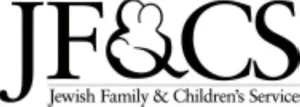


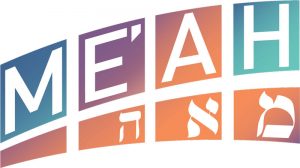
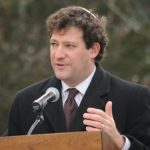 Rabbi Neal Gold teaches and writes about Jewish texts, Israel, and intersections between Jewish life and the contemporary world. He is also a student, recently completing an MA in Near Eastern & Judaic Studies at Brandeis University. He is adjunct faculty and a lecturer for Hebrew College’s
Rabbi Neal Gold teaches and writes about Jewish texts, Israel, and intersections between Jewish life and the contemporary world. He is also a student, recently completing an MA in Near Eastern & Judaic Studies at Brandeis University. He is adjunct faculty and a lecturer for Hebrew College’s 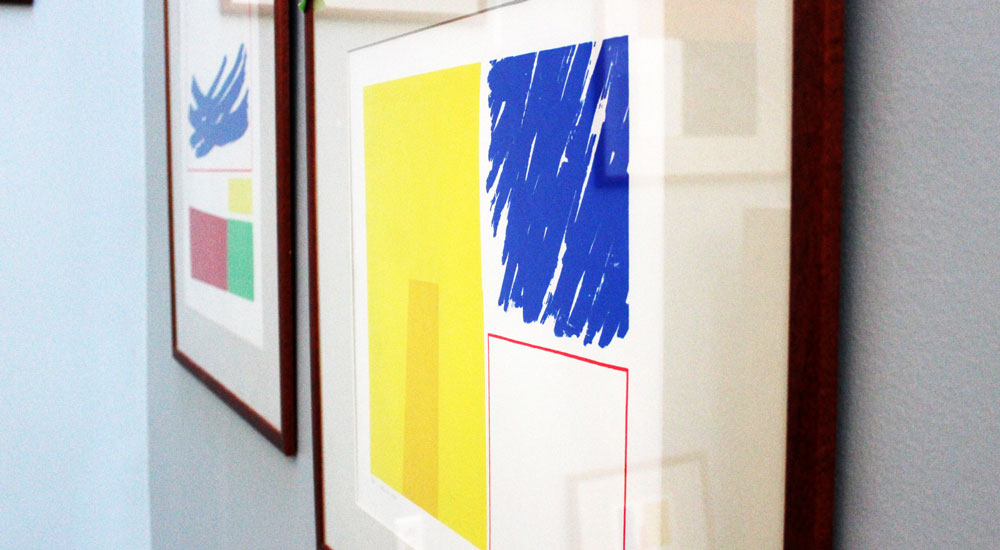
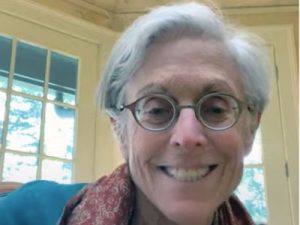 By Deborah Feinstein
By Deborah Feinstein